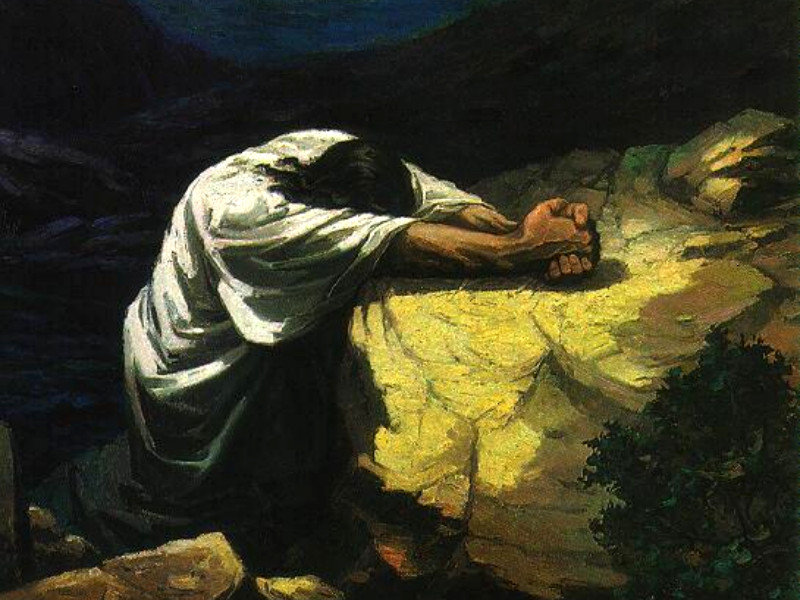“O God, I have tasted Thy goodness, and it has both satisfied me and made me thirsty for more. I am painfully conscious of my need for further grace. I am ashamed of my lack of desire. O God, the Triune God, I want to want Thee; I long to be filled with longing; I thirst to be made more thirsty still. Show me Thy glory, I pray Thee, so that I may know Thee indeed. Begin in mercy a new work of love within me. Say to my soul, ‘Rise up my love, my fair one, and come away.’ Then give me grace to rise and follow Thee up from this misty lowland where I have wandered so long.”
A.W. Tozer was born into poverty in a farming community, and educated himself through the years. He was awarded two honorary doctoral degrees, but what he is most remembered for is his devotional writings urging his readers to a deeper relationship with God. This relationship was ultimately one of being receptive to God’s work, for “God must do everything for us. Our part is to yield and trust.”
Tozer felt that often the hindrances to a deeper relationship with God was due to wrong ideas about Him – whether we think He is able or willing to help us, whether we think of Him as holy or tolerant of sin, whether we think of Him as active or passive. “What comes into our minds when we think about God is the most important thing about us,” he reminded his readers. Our part (the yielding and trusting) required that we recognize our own limitations: “The reason why many are still troubled, still seeking, still making little forward progress is because they haven’t yet come to the end of themselves. We’re still trying to give orders, and interfering with God’s work within us.” As Andrew Murray would have put it, “we hinder Him through our self effort.”
In all his writings, Tozer exhorted the reader to draw near to God. “True Christian experience must always include a genuine encounter with God.” He bemoaned the idea of a person growing to old age in the church who had merely theology and logic, a synthetic god of only doctrine with “no eyes to see, no ears to hear, no heart to love.”
A real encounter with the living God might begin with horror or terror, but grew ultimately into a reverent awareness of the intimate presence of God. God was with them, and they knew it.
Tozer insisted, “the miracle of the perpetuation of life is in God. God did not create life and toss it from Him like some petulant artist disappointed in His work. All life is in Him and out of Him, flowing from Him and returning to Him again… that eternal life which was with the Father is now the possession of believing men, and that life is not God’s gift only, but His very self.” (P.11).
Tozer understood that reason alone cannot grasp the transcendent reality of the personal presence of God Himself. He understood the expression “dead in sin” to point to the deadness of the spiritual organ placed within man at creation by which he could know spiritual things. (75). He criticized the fundamentalist “Bible-taught” man of reason who was learned in the scriptures but ignorant of the Spirit. “The most brilliant intellect may be imbecilic when confronted with the mysteries of God.” 77 . What we need is illumination from the Spirit – and not just intellectual understanding; what we need is the Spirit Himself.
Tozer was an advocate of theosis – the glorification of the believer by being indwelt and ultimately fully unified with God, in Jesus Christ, through the work of the Spirit. Indeed, it is the central purpose of the Christian life:
“Here is the whole final message of the New Testament: Through the atonement in Jesus’ blood sinful men may now become one with God. Deity indwelling men! That is Christianity in its fullest effectuation, and even those greater glories of the world to come will be but a greater and more perfect experience of the soul’s union with God.”
While this union is produced through the Holy Spirit, Tozer recognized that in many Christian churches there was a fear of the Holy Ghost which led most people to be resistant to His presence and work in their hearts. This fear, he insisted, was absolutely groundless and was the heaviest blow to ever strike the Church. He described the Holy Spirit as a moral flame (for He is holy, and must drive out sin), as a spiritual flame (the only force which can bring us beyond mere morality, ethics, and logic), and an intellectual flame (“I wonder whether there is on earth anything as lovely as a brilliant mind aglow with the love of God… [it] sheds a mild and healing ray…a sensitive and shining intellect warm with the fire of the inlivening Spirit.”). The Holy Spirit is “a vital necessity.” The Spirit is also volitional and emotional.
Tozer wrote, “every Christian can have a copious outpouring of the Holy Spirit in a measure far beyond that received at conversion… far beyond that enjoyed by [most] believers today. It is important that we get this straight, for until doubts are removed faith is impossible.” Such a filling is no mere benign warm glow, but a severe surrender to the presence of God Himself, who must be Lord of all. The way of filling is the way of surrender, which ultimately leads to joy but is also necessarily cruciform. “The filling with the Spirit, then, requires that we give up our all, that we undergo an inward death…and open all rooms to the heavenly Guest.”
This filling is the path to joy, and its continuance, Tozer encourages his readers, will be in the seeking the Holy Spirit as a Person dwelling in us (not a blind force or energy), with being taken up with meditating on the Scriptures He inspired, and with being consumed in our relationship with Jesus.
This relational emphasis drives Tozer’s paradigm. As such, everything he writes is ultimately about the love of God.
“To have found God and still to pursue Him is the soul’s paradox of love.”
Categories: God's Presence, Growing in the Lord




“I want to want thee” Yes! This quote is such a good description.
LikeLike
“To have found God and still to pursue Him is the soul’s paradox of love.” And “fear of the Holy Ghost… led most people to be resistant to His presence and work in their hearts.” It is true; I have found myself rationing my exposure to God. Perhaps I have viewed Him as an exotic delicacy- scary to try, but a feather in my hat if I have the guts. But I am convicted. Is He really my daily bread? Is He really fully welcome in me?
LikeLiked by 2 people
This makes me wonder – is it ever completely ‘easy’ to yield to God fully, or does it always involve a fresh surrender which requires some element of feeling exposed?
LikeLike
So well worded, “rationing my exposure to God.” Isn’t that the strangest thing to do? And yet you are not alone in doing it. To be satisfied with a little holiness is such a detriment to spiritual growth!
LikeLiked by 1 person